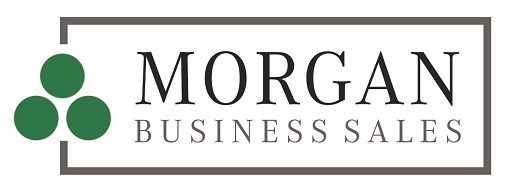Form Submitted - Chat Soon!
Thanks for completing our booking form. We'll now connect you with the best broker for your business who will be in touch. Until then, please find some frequently asked questions answered below.
Frequently asked questions
There are several steps you can take to sell a business:
- Prepare your business for sale by cleaning up financial records and making any necessary improvements to the business operations.
- Determine the fair market value of the business. This can be done by hiring a business valuation expert or reviewing comparable sales of similar businesses.
- Create a sales package, including a confidential business review and financial documents, to present to potential buyers.
- Identify potential buyers, including venture capitalists and strategic buyers in your industry.
- Market the business for sale through advertising, listing the business on an online marketplace, or using a business broker.
- Review and negotiate offers from potential buyers, and work with a lawyer to finalise the sale.
It’s important to have a good legal representation during the sale process. A lawyer familiar with your local law and jurisdiction will help you with the legal paperwork and to check that everything is in order.
Once the sale is complete, transfer ownership of the business and assets to the buyer, and handle any necessary paperwork to close the sale.
A business broker is a professional who acts as an intermediary between buyers and sellers of businesses. Business brokers typically work with small and medium-sized businesses, and help owners who want to sell their business by finding potential buyers and facilitating the sale process.
Business brokers often work with business owners to help them determine the value of their business, develop a marketing plan to attract potential buyers, and negotiate with buyers to ensure that the sale is completed on favorable terms. They may also provide guidance on financing options and other issues related to the sale.
In addition to working with sellers, business brokers may also work with buyers who are interested in purchasing a business. They can help buyers identify businesses that meet their criteria, provide information about the businesses and the industry, and assist with the due diligence process.
There are several reasons why people may choose to use a business broker to sell their business rather than selling it themselves.
- Expertise: Business brokers have the knowledge and experience to properly value a business, market it effectively, and handle the negotiations and legal aspects of the sale.
- Confidentiality: Business brokers can discreetly market a business for sale without disclosing sensitive information to the public. This can help to avoid damaging relationships with customers, employees, and suppliers.
- Time and effort: Selling a business can be a time-consuming and complex process. A business broker can take on many of the responsibilities associated with selling a business, allowing the owner to focus on running the business.
- Access to buyers: Business brokers have access to a wide range of potential buyers, including those not actively looking to buy a business. They can also screen potential buyers to ensure they are qualified and motivated to purchase the business.
- Network of professional: Business Brokers will have a network of professionals such as attorneys, accountants, and appraisers that can assist in the transaction and make it smoother.
- Better negotiation & closing: A experienced business broker has seen many transactions, they know the market and they know how to negotiate and close the deal to the best interest of the seller.
Business brokers typically get paid a commission on the successful sale of a business. The commission is usually a percentage of the final sale price of the business and is negotiated between the broker and the business owner prior to starting the sales process.
The commission percentage can vary depending on the size and complexity of the business being sold, the level of service provided by the broker, and the geographic location of the business. In general, the commission can range from 5% to 10% of the final sale price of the business.
In addition to the commission, some brokers may also charge additional fees for their services, such as advertising and marketing expenses, legal and accounting fees, or other expenses related to the sale of the business. These fees are typically negotiated separately from the commission and should be clearly outlined in the broker’s contract with the business owner.
It’s important for business owners to carefully review and understand the terms of their agreement with a broker before proceeding with the sale of their business, including the commission rate and any additional fees or expenses.
There are several methods for valuing a business, including:
- Comparable company analysis: This method involves comparing the financial metrics of a company to those of similar companies in the same industry. This can help to determine the relative value of a business based on industry benchmarks.
- Discounted cash flow analysis: This method involves projecting the future cash flows of a business and discounting them back to their present value. This helps to determine the intrinsic value of a business based on its future earning power.
- Asset-based valuation: This method involves valuing a business based on the value of its assets, such as real estate, equipment, and inventory. This can help to determine the value of a business that has significant tangible assets.
- Market-based valuation: This method involves looking at the prices of similar businesses that have been recently sold in order to determine a market value for the business being valued.
- Cost-based valuation: This method is used in case of start-up companies when there is no historical data for financial performance. Cost based valuation is the estimation of intrinsic value of a company by summing up the cost of all the assets and the cost of all the liabilities
Ultimately, the appropriate method for valuing a business will depend on the specific circumstances of the company, and a combination of methods may be used to arrive at a final value.
When it comes to selling a business, you have a number of options. You could sell it yourself or choose from a selection of professional business brokers. So why should you choose Morgan Business Sales? These are the reasons we most commonly hear from clients who come to us from a competitor:
- Values First – Clients love that we fiercely prioritise our core values in everything that we do. It means they get honest, accountable service.
- New Age – Clients value how integrated we are with technology, from our smart CRM system that keeps buyers engaged to our award-winning digital Information Memorandum’s (IMs).
- Transparent, Fair Fee Structure – Clients appreciate that our fees are fair and transparent. One small upfront fee to put a business listing together. One success fee in the form of a commission once the business sells. No ongoing retainer fees. This structure keeps motivations aligned to sell a business in the shortest time frame possible.
- Collective Expertise – Businesses are unique and highly complex. This makes the life of a solo business broker very challenging. It’s practically impossible for them to be across every industry and business structure in one career span. Between a team of 20+ experienced brokers however, there’s not a lot of territory that we collectively haven’t covered. Clients highly value how well our team collaborates to get them results.
- Marketing Reach – Finding the right buyer for a business is challenging. To do it properly, you can’t simply slap an ad up on Seek and wait. To get multiple offers and drive up the sale price, you need to be proactive and find the buyers. Clients love that we get this and that we have a dedicated marketing and research team to do this for them.
- Track Record – As the saying goes, the proof is in the pudding. Many clients choose to work with us after browsing our list of recently sold businesses.
Unfortunately there’s no straight answer. We’ve had businesses go under contract within a day. And other listings take two years to sell.
In our experience, the two major determining factors are the price (fair vs overpriced) and the amount of buyer demand in the given industry.
Please book in a free consultation here if you would like an understanding of how businesses like yours have been performing recently in the market.
Our listings get published to all of Australia’s largest business for sale directories (Seek, Commercial Real Estate, Bsale etc).
In addition we promote businesses on our website, on social media (Google, Facebook, Instagram, LinkedIn) and to our email list of 30,000+ qualified buyers.
For larger businesses, we also conduct a direct marketing campaign to national and international groups who have the potential to be a great fit.
No. We market businesses in such as way as that they remain anonymous. We act confidentially in all dealings.
In short, yes, we’re fully licensed nationwide.
In Australia, licensing of business brokers varies by state, with some states requiring licenses, some not; and some requiring licenses if the broker is commissioned but not requiring a license if the broker works on an hourly fee basis.
State rules also vary about recognizing licensees across state lines, especially for interstate types of businesses like national franchises.
Some states, require either a broker license or law license to even advise a business owner on issues of sale, terms of sale, or introduction of a buyer to a seller for a fee.
All Australian States require a real estate license in order to commence a career in Business Broking. According to a recent Australian Business Broking convention at least 6 states and two territories required business brokers to have a real estate license.
The following states require a license to practice as a business broker: Victoria, Tasmania, South Australia, Western Australia, New South Wales and Queensland. Territories in Australia requiring a licence are the Australian Capital Territory and the Northern Territory.




